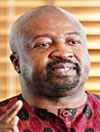…the ball is now in the President’s court
THE ruling by the chief justice (CJ) on the GECOM stand-off has understandably ignited another round of political debate in Guyana. The chief justice has in effect recognised the President’s constitutional right to ultimately choose the next chair of GECOM. But she differed with the President on the qualification for the job; she interpreted “any other fit and proper person” much broader than the president. Further, she upheld the president’s right to withhold explanation for his rejection of nominees, but ruled than in the spirit of “democracy and good governance,” he should explain.
I think it was a very even-handed ruling that recognises both the letter and the spirit of the constitution. The political consequence of the ruling is that it gives the political actors an opening to settle the matter. That is why I find the president’s retort that he intends to press on with his reading of the constitution somewhat surprising. I thought he would have used the ruling as a vindication of his position and then proceed to compromise on the question of the qualification for the job. In other words, I don’t think it is worth risking more political capital on this question of a judge or someone with those qualities being the only qualification. For me the integrity and the perceived impartiality of the person is much more important.
The President has taken a strict, constructivist approach to the matter, whereby he is reading the constitution in its literal sense. To be fair to him, this is a legitimate school of legal thought which reads legal documents as closely as possible to the original intent of the framers. The “word” of the document is important in this regard. Many legal scholars have found this strict reading of constitutions to be too narrow, because it does not allow for changing dynamics and it does not take into consideration the broader social and political situation.
A constitution, though written at a particular juncture and within a particular context, has to be a living document if it is to be an effective tool for holding a nation together. In other words, the constitution has to be adaptable. Here is where the judiciary comes in—it has to be able to interpret the constitution in light of the changing context of the society without, of course, deviating from the fundamental principles underlying the State and society.
The framers of our constitution obviously had good reason to identify a person with a legal background as fit and proper, but they also allowed some elasticity by adding on the words “any other fit and proper person.” The president is reading those words narrowly, while the chief justice is reading them broadly. I side here with the CJ, because I think her reading and ruling opens the door for compromise, which I think should be embraced by the President.
I am concerned about the politics of this matter and I think the President should also. One must balance adherence to the letter of the constitution against the possible political consequences. We are dealing with an opposition which is in the process of compiling a scoresheet of justifications for its narrative that the coalition is trying to rig the next election. This is part of its ethnic appeal to half of the electorate both to excite them to vote for the PPP, but more ominously to put them in a frame of mind to reject the results should the PPP lose the elections.
This narrative should not be fed. Hence, the technicality over who is “fit and proper” to be GECOM chair should no longer hold up the process. I don’t think anyone would take the president to court for not choosing a judge and even if they do, they would lose. In fact, as we have seen, it is easier to take him to court and win over insisting that only a judge can be chosen.
The chief justice’s ruling that the president should explain his rejection of the list, even though he is not legally obligated to do it is significant. The democratic foundation of our society trumps any unilateral authority that may be granted to the executive.
Executive authority is subject to the spirit of the constitution that is premised on fairness and democratic theory and practice. And in the final analysis, it is the judiciary that is the final umpire as far as the constitutionality of an action is concerned. Judicial review is sacred to a democratic praxis. I think the president knows this. Hence his remarks as reported in the press is somewhat puzzling.
In the final analysis, this GECOM matter should be speedily resolved—it is too risky from the government’s standpoint to further drag it out. My view is that this benefits the PPP’s cause in the end. If there are four people on the list that are fit, that’s wide enough scope to make a choice. The chief justice has given an opening. The ball is now in the President’s court.
More of Dr. Hinds ‘writings and commentaries can be found on his YouTube Channel Hinds’ Sight: Dr. David Hinds’ Guyana-Caribbean Politics and on his website www.guyanacaribbeanpolitics.com. Send comments to dhinds6106@aol.com




.png)








